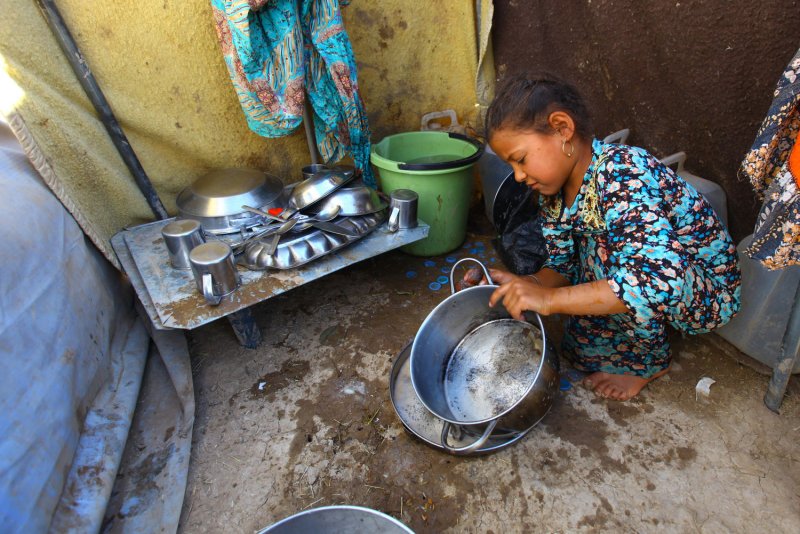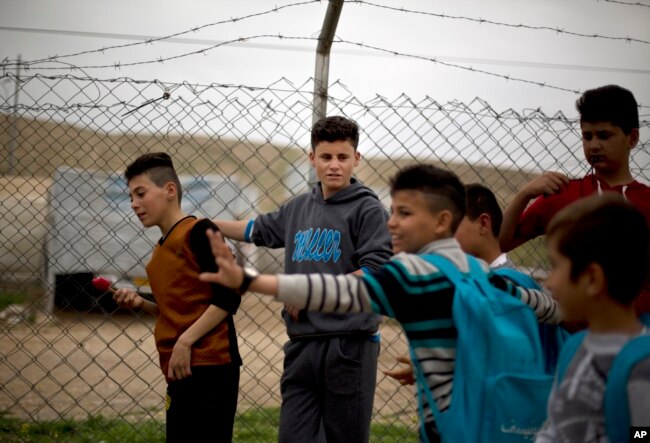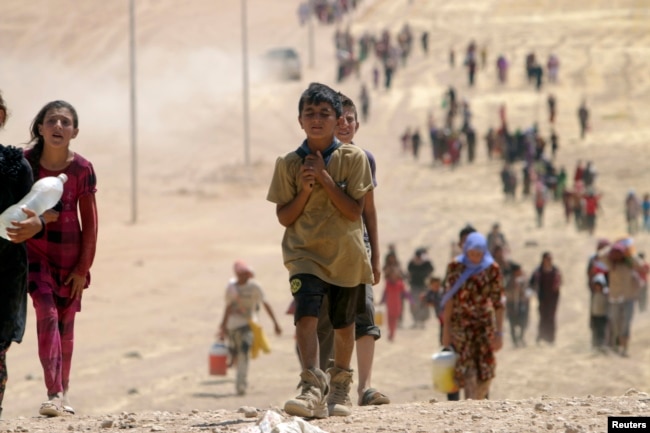Let us not forget what the Yazidis went though and are still going through. Keep your fingers crossed that they get some badly needed help.
24 September 2014 Last updated at 00:15 ET
By Yolande KnellBBC News, Irbil
Yazidi survivors say women and girls have been trafficked for sex by militants
Continue reading the main story
Islamic State
When tens of thousands of members of Iraq's Yazidi minority fled from Islamic State (IS) early last month, many were stranded on the barren slopes of Mount Sinjar.
They became the focus of international attention. But now they say the world has forgotten their plight.
Across the Kurdish area of northern Iraq, displaced Yazidi families can be seen living in makeshift camps and half-finished buildings, even under bridges.
Meanwhile, experts say some 4,500 individuals - including about 3,000 women and children - remain in IS hands.
The young women and girls are being treated as spoils of war and trafficked around the region. Only a few have managed to escape.
Adla has just been reunited with her husband at a camp in the town of Zakho. She was taken with others from her village and held for 38 days.
"At first I was taken to a big house in Mosul. It was full of women," says Adla, trembling. "They locked all the windows and doors and surrounded it with guards."
"Every day or two, men would come and make us take off our headscarves so they could choose which of us they wanted. Women were dragged out of the house by their hair."
Continue reading at:
BBC News - Islamic State crisis Yazidi anger at Iraq s forgotten people
24 September 2014 Last updated at 00:15 ET
By Yolande KnellBBC News, Irbil
Yazidi survivors say women and girls have been trafficked for sex by militants
Continue reading the main story
Islamic State
When tens of thousands of members of Iraq's Yazidi minority fled from Islamic State (IS) early last month, many were stranded on the barren slopes of Mount Sinjar.
They became the focus of international attention. But now they say the world has forgotten their plight.
Across the Kurdish area of northern Iraq, displaced Yazidi families can be seen living in makeshift camps and half-finished buildings, even under bridges.
Meanwhile, experts say some 4,500 individuals - including about 3,000 women and children - remain in IS hands.
The young women and girls are being treated as spoils of war and trafficked around the region. Only a few have managed to escape.
Adla has just been reunited with her husband at a camp in the town of Zakho. She was taken with others from her village and held for 38 days.
"At first I was taken to a big house in Mosul. It was full of women," says Adla, trembling. "They locked all the windows and doors and surrounded it with guards."
"Every day or two, men would come and make us take off our headscarves so they could choose which of us they wanted. Women were dragged out of the house by their hair."
Continue reading at:
BBC News - Islamic State crisis Yazidi anger at Iraq s forgotten people



